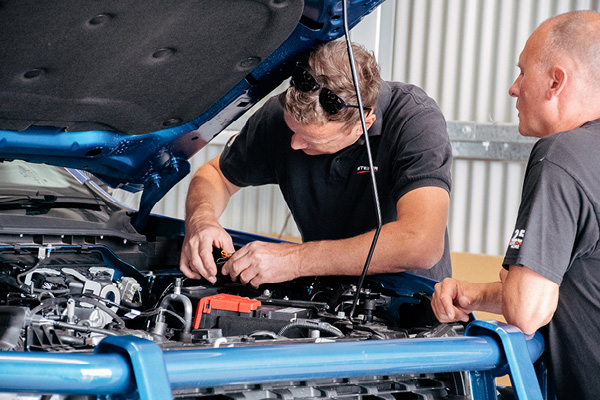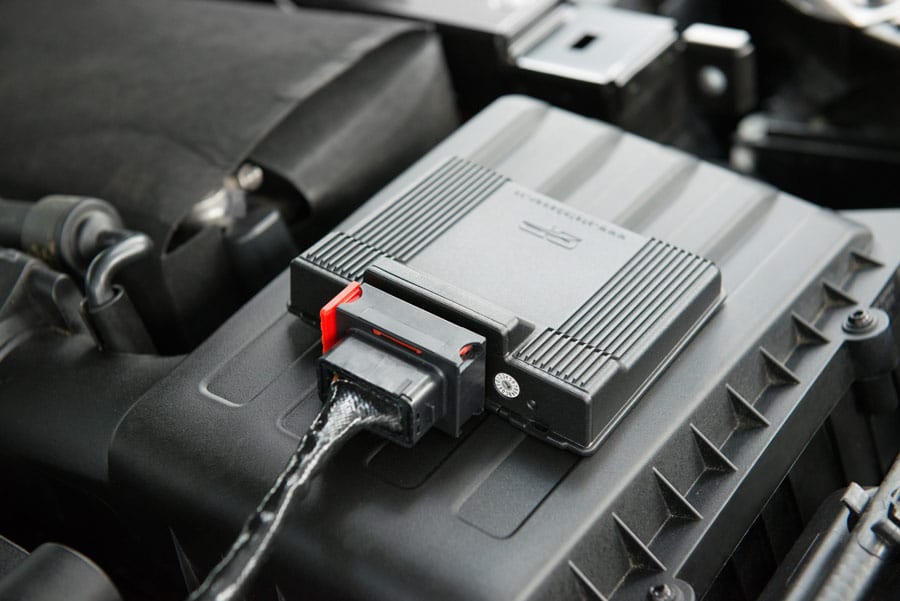Diesel Care weighs into the power modules v ECU tuning debate with their side of the diesel powerup story

One of the newest modifications to hit the 4WD scene is diesel ECU tuning, also known as ‘flash’ tuning. It seems that everywhere you look, there is another person offering to come to you, plug in a laptop and get seemingly magical power figures with little more than a software update. We all know the saying ‘if it seems too good to be true, then it usually is’, and while we’ve spoken before about ECU tuning of modern common-rail diesels, this time we’re opening up the floor to Diesel Care to discuss their side of the story, and why they’ve banked their business’ reputation on the Steinbauer range of performance modules.
ECU ‘Tuners' – Are you getting what you're paying for?
Here’s the thing a lot of people don’t understand. There’s a big difference between a ‘master’ tuner and a ‘slave’ tuner. Master tuners spend a lot of time refining their ECU tune with multiple dyno runs and tests and often for each individual customer’s vehicle. That means considerable expense, something very few ECU tuners in Australia have the finances or technical know-how to pull off. Slave tuners purchase the tuning files from the master tuners, and simply use a laptop to connect to your computer and upload the new tune to the computer, potentially without any clue about what’s actually going on.
“Would you let a computer hacker play with your diesel engine?” asks Andrew Bourne from Diesel Care. “A lot of people who program flash tunes understand computers, but know nothing about your diesel engine. So while a flash tune will get you some power increases, beware the huge risks to your engine. A flash tuner will go into your ECU with new programming that the original manufacturer spent millions on setting up and perfecting. Some actually disable engine warning lights and go outside factory safety settings.”
Plug and play ability
“All Steinbauer modules are plug and play,” says Andrew. “They are programmed for the model engine they are being fitted to. Custom tuning is possible to fine tune the module to accommodate other modifications such as exhaust or turbo upgrades.
Can the average handy 4WDer fit a module themselves? In most cases yes, but this depends on the vehicle. Installation can be very easy; taking just a few minutes, or quite tedious, taking hours. We can advise people if their vehicle is DIY or better left to a dealer to fit.”
Safe V Risky Diesel Tuning

“The Steinbauer module is widely known as the safest performance increase for diesel engines in the world. Though it can, it doesn’t push the limits, and this, along with a safety cut back feature integrated in the programming to slowly decrease enhancement on sustained pulls, protects your engine against dangerously high combustion temperatures.
This means when you’re towing heavy or using big power, your engine is safe. The module works by altering the fuel injection duration at the main phase of injection, this leads to a prolonged combustion process and therefore more downward pressure on the piston. The result is more power and more torque. The Steinbauer module does not change fuel pressure, nor does it change ECU fault code parameters, it all works within the safety settings of your vehicle.
If you had the need to do so, the module can easily be unplugged from the engine to return the performance to standard, especially handy in remote areas to help in diagnosing a fault, this is not possible with an ECU re flash tune. Steinbauer modules are not affected by factory ECU updates, as can be the case with flash tuning.”
What happens if something goes wrong?
“Any electronic device can fail,” explains Andrew. “In the case of Steinbauer, if the module fails, in most cases the engine operates at standard power but runs normally. The exception to this is if the common rail injectors are Piezo operated. In this case the engine will stop, however by unplugging the harness from the injectors the engine can then be started.”
The big question – What happens with new vehicle warranties?
“We always take the cautious approach,” Andrew continues. “We have experienced times when warranty has been denied because a module has been installed, even though no evidence existed that the problem is related to the module. It’s an “easy out” for them. Most manufacturers are negative to performance enhancement unless they do it, so we advise customers to avoid a debate by removing the module before going near the dealer. In most cases it’s a pretty easy job, and there’s no footprint left on the ECU.”
Steinbauer power module – How it works
There are a couple of different ways that a diesel performance module or chip can extract more power from your motor. However, not all ways are equal and the Steinbauer module is engineered to safely develop more power from your motor in very specific ways. Here’s how it’s done.
- Precise fuel control
- No interference with the original ECU
- No change in common-rail pressure

One method often used to increase the performance of the new-generation common rail diesel engines is to increase fuel rail pressure by tricking the ECU with “fudged” signals from sensors. This can create abnormal stresses on fuel system components with consequent unreliability problems and the potential for major damage. STEINBAUER modules don’t change rail pressure.
The desired performance enhancement is achieved by changing injection duration, the same way the system was originally designed to operate. This also allows precise fuel control throughout the full rpm range of the engine.
Real-world review – Shauno & HIS 79
“Out of the many power upgrades I could do to my 79 Series I have chosen the Steinbauer as I believe it’s the safest power upgrade I can do to my vehicle,” says Shauno. “I have achieved huge power and torque gains and have the confidence that this is reliable power as there are many inbuilt safety features that the Steinbauer offers that basic fuel rail chips and remaps don’t offer.
This plug and play unit has completely transformed the drivability of my 79 and is one of the best bang for buck power upgrades I could make. I use my vehicle in some of the most remote parts of the country, and reliable and safe power is my biggest requirement. After 12 months of using the Steinbauer, I am very happy with the results.”
—–
Article written and published in Issue 280 4WD Action Magazine
